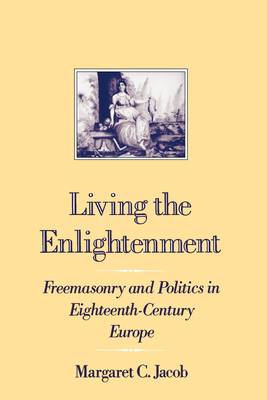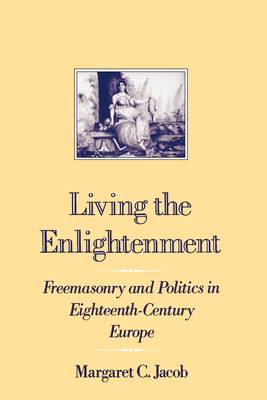
- Afhalen na 1 uur in een winkel met voorraad
- Gratis thuislevering in België vanaf € 30
- Ruim aanbod met 7 miljoen producten
- Afhalen na 1 uur in een winkel met voorraad
- Gratis thuislevering in België vanaf € 30
- Ruim aanbod met 7 miljoen producten
Zoeken
€ 183,45
+ 366 punten
Omschrijving
Long recognized as more than the writings of a dozen or so philosophes, the Enlightenment created a new secular culture populated by the literate and the affluent. Enamoured of British institutions, Continental Europeans turned to the imported masonic lodges and found in them a new forum that was constitutionally constructed and logically egalitarian. Originating in the Middle Ages, when stone-masons joined together to preserve their professional secrets and to protect their wages, the English and Scottish lodges had by the eighteenth century discarded their guild origins and become an international phenomenon that gave men and eventually some women a place to vote, speak, discuss and debate. Margaret Jacob argues that the hundreds of masonic lodges founded in eighteenth-century Europe were among the most important enclaves in which modern civil society was formed. In France, the Netherlands, Belgium, and Britain men and women freemasons sought to create a moral and social order based upon reason and virtue, and dedicated to the principles of liberty and equality. A forum where philosophers met with men of commerce, government, and the professions, the masonic lodge created new forms of self-government in microcosm, complete with constitutions and laws, elections, and representatives. This is the first comprehensive history of Enlightenment freemasonry, from the roots of the society's political philosophy and evolution in seventeenth-century England and Scotland to the French Revolution. Based on never-before-used archival sources, it will appeal to anyone interested in the birth of modernity in Europe or in the cultural milieu of the European Enlightenment.
Specificaties
Betrokkenen
- Auteur(s):
- Uitgeverij:
Inhoud
- Aantal bladzijden:
- 320
- Taal:
- Engels
- Reeks:
Eigenschappen
- Productcode (EAN):
- 9780195070514
- Verschijningsdatum:
- 26/12/1991
- Uitvoering:
- Paperback
- Formaat:
- Trade paperback (VS)
- Afmetingen:
- 156 mm x 235 mm
- Gewicht:
- 444 g

Alleen bij Standaard Boekhandel
+ 366 punten op je klantenkaart van Standaard Boekhandel
Beoordelingen
We publiceren alleen reviews die voldoen aan de voorwaarden voor reviews. Bekijk onze voorwaarden voor reviews.







